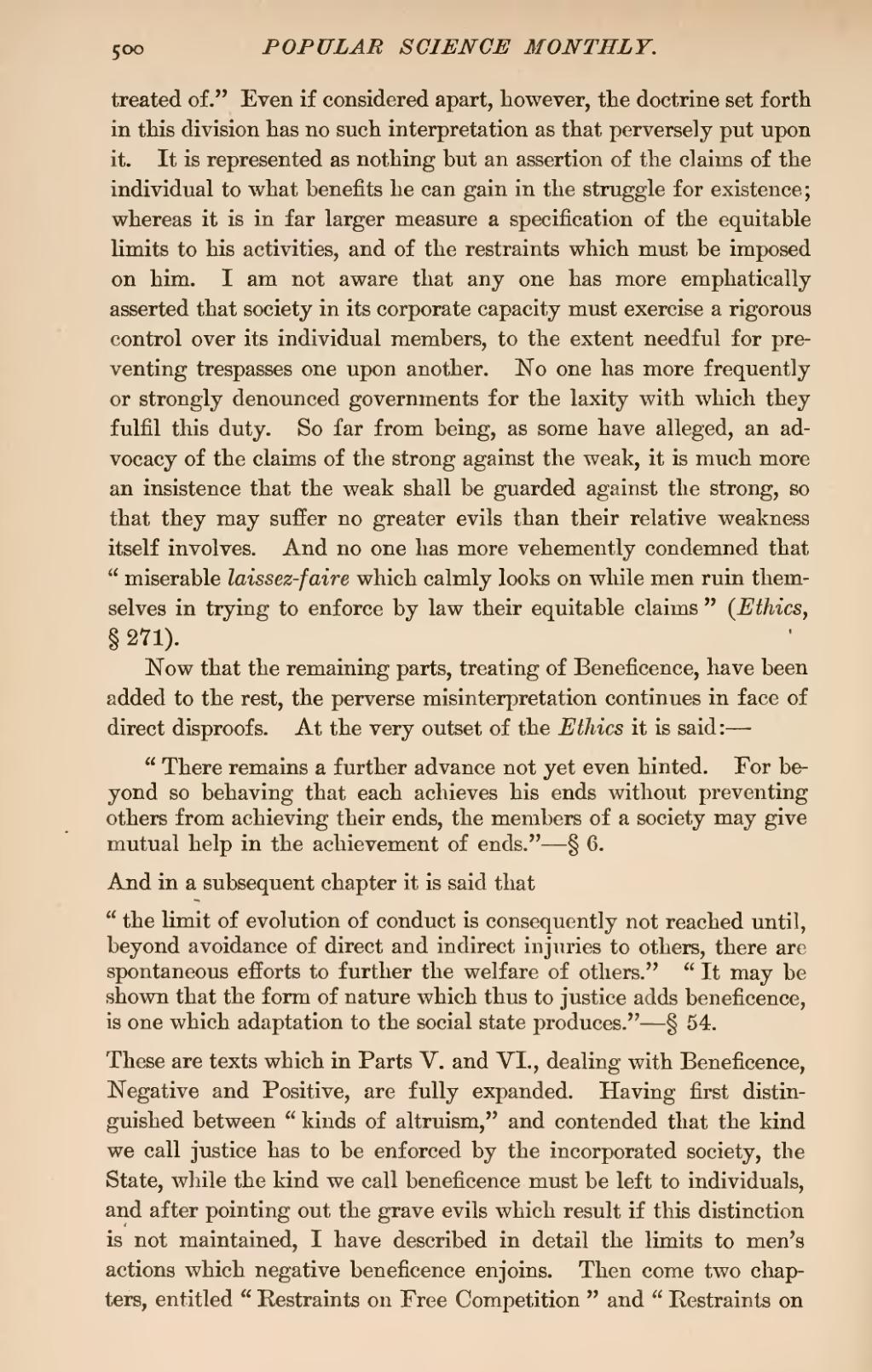treated of." Even if considered apart, however, the doctrine set forth in this division has no such interpretation as that perversely put upon it. It is represented as nothing but an assertion of the claims of the individual to what benefits he can gain in the struggle for existence; whereas it is in far larger measure a specification of the equitable limits to his activities, and of the restraints which must be imposed on him. I am not aware that any one has more emphatically asserted that society in its corporate capacity must exercise a rigorous control over its individual members, to the extent needful for preventing trespasses one upon another. No one has more frequently or strongly denounced governments for the laxity with which they fulfil this duty. So far from being, as some have alleged, an advocacy of the claims of the strong against the weak, it is much more an insistence that the weak shall be guarded against the strong, so that they may suffer no greater evils than their relative weakness itself involves. And no one has more vehemently condemned that "miserable laissez-faire which calmly looks on while men ruin themselves in trying to enforce by law their equitable claims"(Ethics, § 271).
Now that the remaining parts, treating of Beneficence, have been added to the rest, the perverse misinterpretation continues in face of direct disproofs. At the very outset of the Ethics it is said:—
And in a subsequent chapter it is said that
These are texts which in Parts V. and VI., dealing with Beneficence, Negative and Positive, are fully expanded. Having first distinguished between "kinds of altruism," and contended that the kind we call justice has to be enforced by the incorporated society, the State, while the kind we call beneficence must be left to individuals, and after pointing out the grave evils which result if this distinction is not maintained, I have described in detail the limits to men's actions which negative beneficence enjoins. Then come two chapters, entitled "Restraints on Free Competition" and "Restraints on
